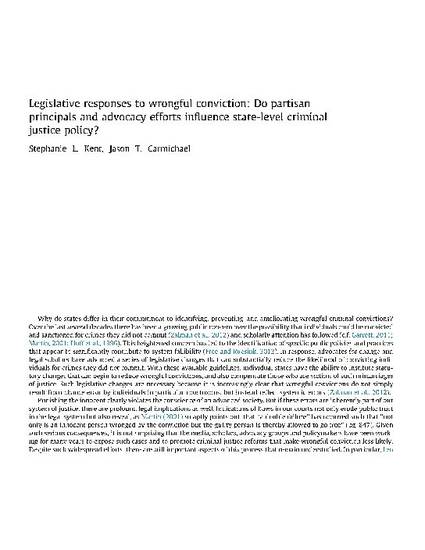
The number of discovered wrongful criminal convictions (and resulting exonerations) has increased over the past decade. These cases erode public confidence in the criminal justice system and trust in the rule of law. Many states have adopted laws that aim to reduce system errors but no study has examined why some states appear more willing to provide due process protections against wrongful convictions than others. Findings from regression estimates suggest that states with a Republican controlled legislature or more Republican voters are less likely to pass these laws while the presence of advocacy organizations that are part of the 'innocence movement' make legislative change more likely. We thus identify important differences in the political and social context between U.S. states that influence the adoption of criminal justice policies.
Available at: http://works.bepress.com/stephanie_kent/14/
